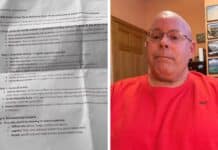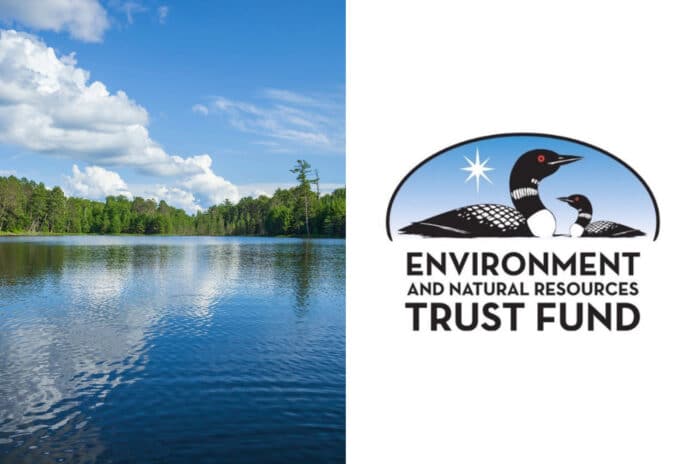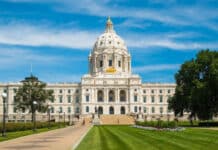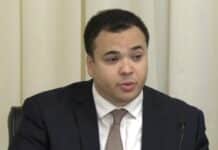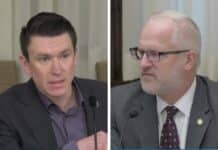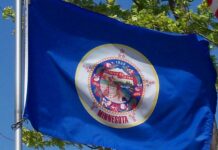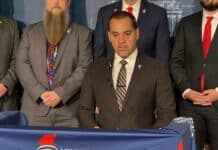Revenues from the state lottery will continue to fund environmental and conservation projects in Minnesota for another quarter century after voters resoundingly voted “yes” on a ballot measure last week.
But the renewal of that funding will come with a twist in how some of those funds are allocated. And at least a handful of Republican legislators aren’t happy about that.
On Nov. 5 more than 77 percent of Minnesota voters said they favored renewing allocation of 40 percent of state lottery proceeds to the Environment and Natural Resources Trust Fund until at least 2050. In total, more than 2.5 million people voted “yes” to the following ballot question:
“Shall the Minnesota Constitution be amended to protect drinking water sources and the water quality of lakes, rivers, and streams; conserve wildlife habitat and natural areas; improve air quality; and expand access to parks and trails by extending the transfer of proceeds from the state-operated lottery to the environment and natural resources trust fund, and to dedicate the proceeds for these purposes?”
According to the returns reported by the Minnesota Secretary of State, just more than a half-million people voted “no” to the question, and about 200,000 left the question blank. According to state election law, a blank vote on ballot measures constitutes a “no” vote.
Push for passage of the amendment was primarily driven by a group calling itself “Minnesotans for Our Great Outdoors.” The organization is actually a subsidiary of Conservation Minnesota Voter Center, Inc., which registered “Minnesotans for Our Great Outdoors” with the secretary of state in October 2023.
Criticism over ambiguous language
All of the proposed changes that would take place within the state-operated Environment and Natural Resources Trust Fund were not included in the plain language of the question. Those details were buried in the legislation itself. That’s what irked some Republican legislators who voted down a bill last spring that placed the amendment on the ballot.
Rep. Peggy Bennett, R-Albert Lea, called the language of the amendment “deceptive for most voters” and said she voted “no” because it “decreases oversight, increases the potential for theft by fraud, and limits public input and transparency.”
“It takes the decisions out of the hands of the people and puts them solely into the hands of unelected bureaucrats,” Bennett said in a social media post last month. “We should go back to the ballot drawing board because we can do much better.”
Language included in the legislation requires the Environment and Natural Resources Trust Fund to dedicate 1.5 percent of state lottery revenues to “expand the number and diversity of recipients who benefit from the environment and natural resources trust fund, especially in communities that have been adversely affected by pollution and environmental degradation.”
The constitutional amendment, according to the legislation, also triggers the creation of a grant advisory council.
Language in the legislation requires the DNR commissioner to appoint 11 people to the council, two of whom must be members of “the Minnesota Ojibwe Tribe,” two who are members of the Minnesota Dakota Tribe and four members who “identify as Black or African American, Hispanic or Latino, Asian, or Pacific Islander or as members of a community of color.”
The language of the legislation also bars use of funds allocated by the trust for use in capital projects.
The bill to place the constitutional amendment on the 2024 general election ballot passed in the state House by a margin of 87-41, including support from all 70 Democrats and 17 Republicans. The bill passed in the state Senate by a margin of 36-29, with two Republicans joining Democrats in voting “yes.”
All 41 no votes in the House came from Republicans who represent districts in all corners of the state.
One of those is Rep. Walter Hudson, R-Albertville, who said in a radio interview last month: “What this ballot question should say, if it was accurate, the ballot question would read, ‘should the state of Minnesota set aside roughly $11 million every year to give to woke activist groups?’”
Support for amendment varies among geography
Approval of the ballot measure was supported by a majority of voters in all 87 counties, but enthusiasm over its passage varied depending on geography.
Voters in Hennepin (85 percent) and Ramsey (83 percent) counties expressed the highest rate of support for the amendment among all other counties. Most metro area suburbs saw support for the amendment at or near 80 percent. In Greater Minnesota, voters of Olmsted County (southeastern Minnesota) supported the amendment at an 80 percent “yes” rate.
The counties where voters supported the amendment at the lowest rate—right around 60 percent “yes” votes—are mostly areas that lie along Minnesota’s borders or are several hours away from the Twin Cities. Clearwater County, which stretches from Itasca State Park to the Upper and Lower Red Lake chain, supported the amendment at a 52-percent “yes” rate.
Roseau and Kittson counties lie along the northwest border of the state and supported the amendment at a 60-percent “yes” rate among their voters. Morrison County in central Minnesota supported the amendment at a 56-percent rate, and Marshall County in southwestern Minnesota saw just 56 percent of its voters fill in the “yes” circle on their ballots.
Hank Long
Hank Long is a journalism and communications professional whose writing career includes coverage of the Minnesota legislature, city and county governments and the commercial real estate industry. Hank received his undergraduate degree at the University of Minnesota, where he studied journalism, and his law degree at the University of St. Thomas. The Minnesota native lives in the Twin Cities with his wife and four children. His dream is to be around when the Vikings win the Super Bowl.



